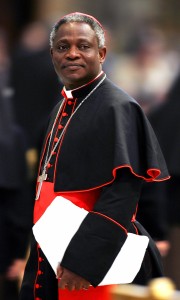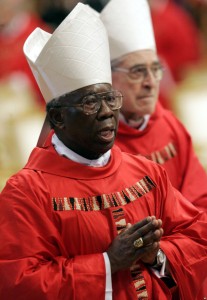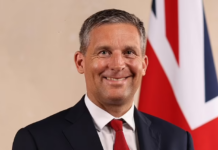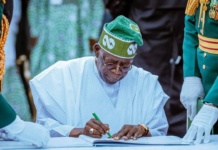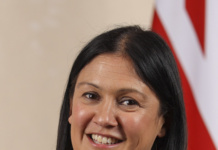By Alan Oakley, London. There is one obvious question reverberating around the Catholic Church this week. In the wake of Benedict XVI’s shock resignation from the papacy, Catholics worldwide are wondering who will be next to take the helm.
Amongst Africans and many other non-white Catholics, the question is a different one. Are we about to see the first Black pope?
Two African cardinals are amongst the top candidates for the challenging role. Cardinal Peter Turkson, a Ghanaian ordained to the priesthood in 1975 and a cardinal since 2003, is thought to be the more favoured of the pair. The other, Nigerian Francis Arinze, has a good claim. He has been a cardinal since 1985 and was one of the favourites for the papacy when Benedict XVI was chosen in 2005. But Arinze is now 80, older than Benedict XVI was in 2005, and it is unspecified age-related issues that have given rise to the situation the Church finds itself in; a situation unprecedented in almost six centuries.
Contrary to many reports, neither Cardinal Turkson nor Cardinal Arinze, even if elected, would become the first African pontiff. That honour went to Pope Victor I, a native of the region now covered by Libya. He was pope between AD 189 and AD 199. While experts believe the election of a non-European pope is a real possibility, most point to the fact that the majority of the world’s Catholics are in South America and see that continent as most deserving.
Peter Turkson, born in Nsuta-Wassa in the west of Ghana, has been an ordained priest for more than thirty years and was made a cardinal by Pope John Paul II in October 2003. He currently serves as president of the Vatican’s Council for Justice and Peace. Colleagues describe him as a “people person” with excellent communication skills. However, he is considered a conservative who is unlikely to steer the church in a new direction on issues such as contraception, abortion and gay rights, which may count against him in some quarters.
His conservatism has its limits, however. He is regularly seen around Rome driving a Lexus SUV and is often to be found accessing his iPhone or iPad. He also speaks seven languages.
Speaking to ABC News on Monday (February 11) Turkson said: “The new pope has to be very sensitive to the present condition of humanity and yet recognise the task of having to still keep the Gospel in its pure form. That’s a big challenge that we all pray for.”
On the immediate future of the Church, he said: “I think what we should be looking for, probably what we should be doing rather is recognising the nature of the Church… pray God will provide us with the leadership that can confidently lead the humanity in the Church in the year ahead. The challenges are not going to cease. They’re going to be increasing and we need somebody with God’s guidance to get us through all this.”
Francis Arinze, an Igbo from Anambra State, served as a priest for 27 years and in 1965 became the world’s youngest bishop, aged 32, before Pope John Paul II elevated him to Cardinal in 1985. He succeeded the outgoing pope (then Cardinal Joseph Ratzinger) as Cardinal Bishop of Velletri-Segni in 2005. Arinze was one of the principal advisors to Pope John Paul II, and was considered papabile (ie. Suited to become pope) before the 2005 papal conclave, which elected Ratzinger to become Benedict XVI when John Paul II died.
Arinze is also considered a conservative. He provoked protests speaking at Georgetown University in 2003 when he appeared to associate homosexuality with pornography, fornication and adultery.
Arinze was appointed to lead the Vatican’s Council for Interreligious Dialogue, and colleagues compliment his ability to cooperate with people of other faiths.
On the occasion of a papal electoral gathering or ‘conclave’, after the votes are counted, the papers are traditionally burned. If there is a clear winner, white smoke from the resulting fire signals the fact to onlookers that a new pope has been chosen. If there is no clear winner, meaning that another vote will have to take place, something is added to the ballot papers so that black smoke is emitted.
Benedict XVI’s resignation, to take effect on the last day of February, means a conclave of senior cardinals will meet in Rome to choose a successor by the end of March.


